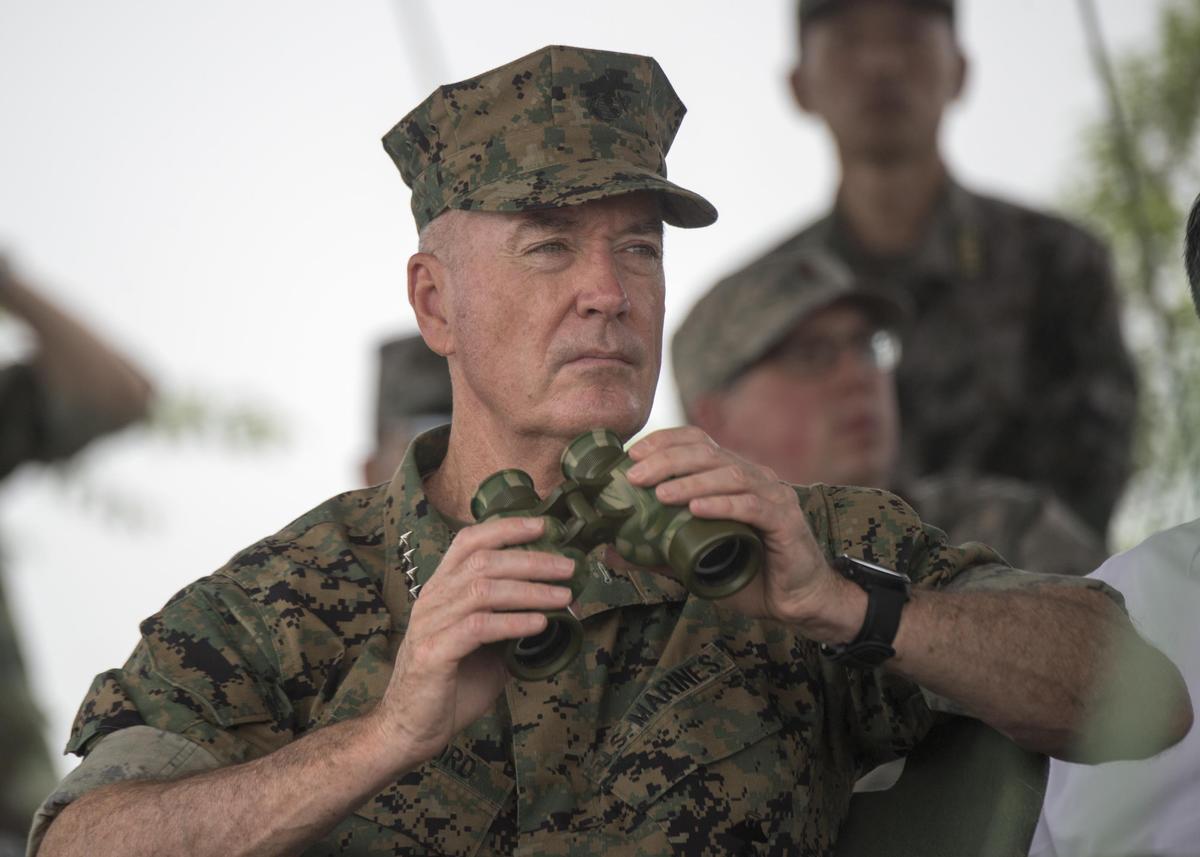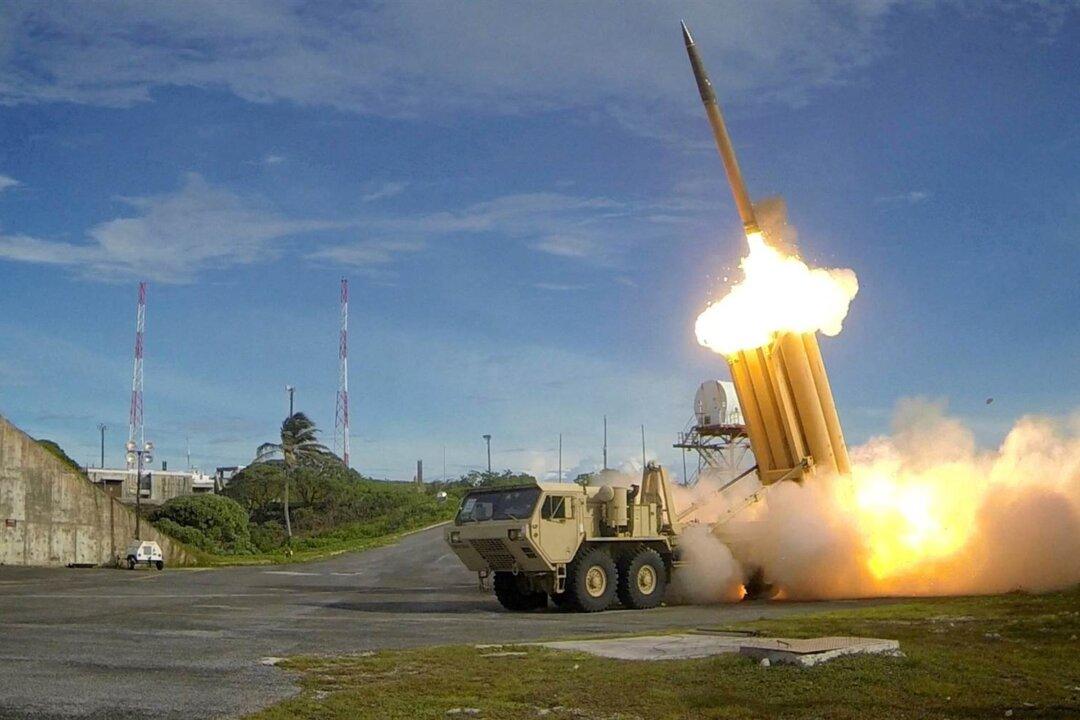The South Korea and U.S. alliance is moving ahead with deployment of the Terminal High Altitude Area Defense (THAAD) missile defense system, a Department of Defense spokesperson has confirmed.
“Everything is progressing,” said Lieutenant Colonel Christopher Logan, a defense department spokesperson.
“We’ve got the intercept capability right now,” he said, alluding to two batteries of shield missiles already installed and operational.
Meanwhile, a senior U.S. general is in China, ensuring lines of communication are open to avoid any miscalculations in the increasingly tense regional environment.
The two batteries of THAAD missiles were deployed in May before the full installation was halted due to an uproar in Beijing over the presence of the U.S. missile defense system and radars so close to its border.
South Korea claimed the halt was to conduct an environmental assessment of the installation area.
But as tensions have mounted between the United States and North Korea, the Chinese regime’s anger has diminished in importance next to South Korea’s physical security.
Logan could not say when the installation of the system resumed, nor give a timeline on when it would be concluded.
On Tuesday, Yonhap News, South Korea’s largest news agency, quoted Pentagon spokesman Col. Rob Manning as saying the initial intercept ability achieved in May is now being built upon.
The South Korean government determined last week that noise and radiation near the site of the THAAD battery In Seongju, southeastern South Korea, were negligible, removing the professed reason to halt the installation of THAAD batteries.
President Moon Jae-in has called four more batteries of launchers to be installed for the missile shield.
A DoD News report filed from Shenyang, China, on Wednesday says Chinese and U.S. defense staff are holding frank talks on the problems posed by North Korea.






